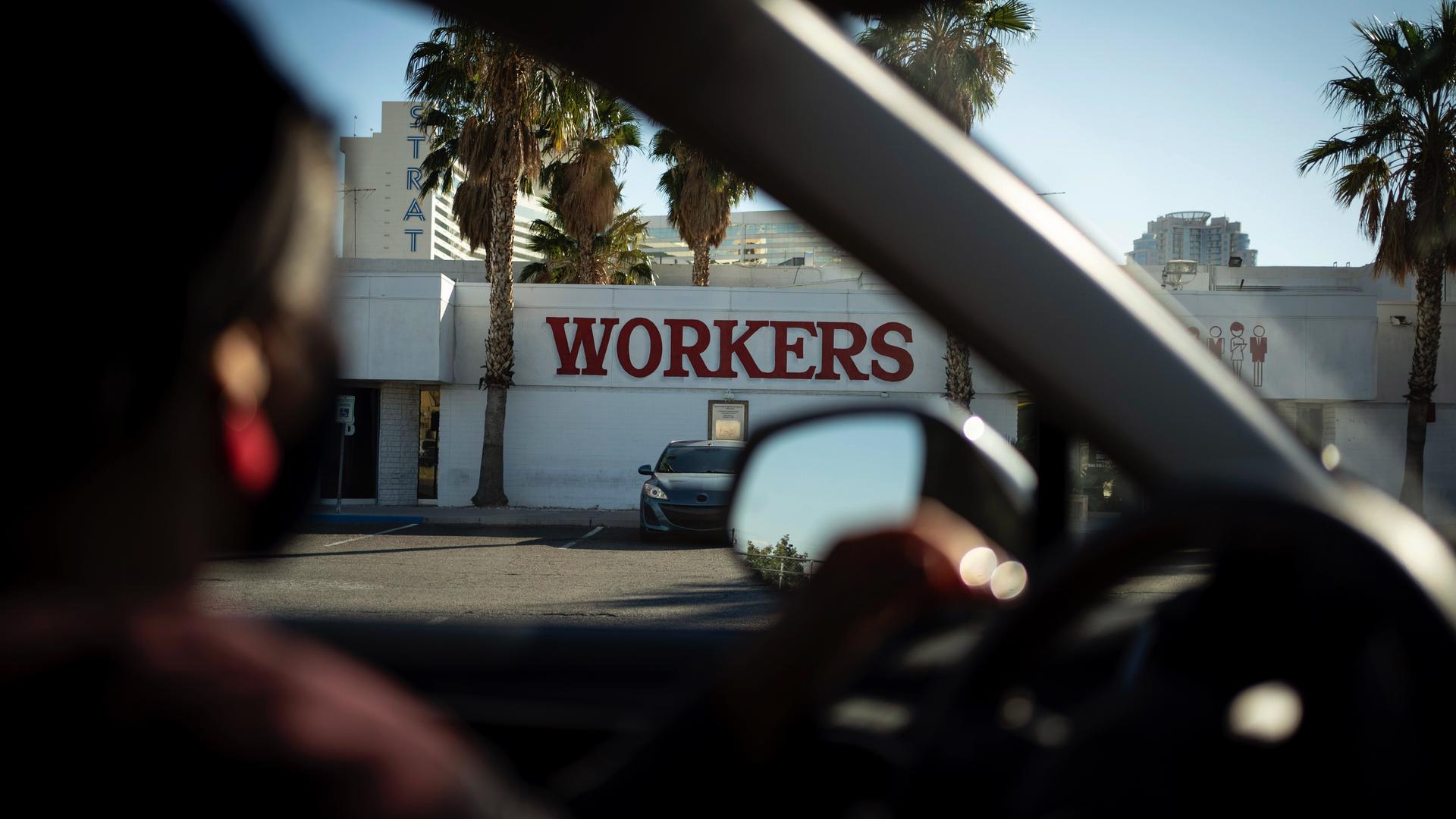Over the years, Yesenia Ramales said that she and her co-workers talked about unionizing their nonprofit jobs. Nothing came out of those talks, though. But then the pandemic hit, and the idea came up again.
“They [my co-workers] reached out to me, and they were like, ‘Well, you know, are you willing to help us get this going?’”
Ramales, a senior legal assistant, accepted the challenge. And last month, her employer, the Florence Immigrant and Refugee Rights Project — a leading national immigrant nonprofit based in Arizona — recognized their union, Proyecto Solidaridad — FIRRP.
Related: A federal jury ruled that a Washington state detention center owes detainees minimum wage
Twenty-nine-year-old Ramales also has DACA, or the Deferred Action for Childhood Arrivals, which gives temporary protections from deportation and a work permit to some undocumented people who arrived to the US as children. Courts are debating the fate of that program. If it ends, Ramales and several of her co-workers could lose their work permits at any moment.
Ramales joins a movement of workers — many of them undocumented immigrants with temporary work permits — unionizing their workplaces across the US.
Even without those benefits, undocumented people are legally allowed to join unions and organize.
She said that uncertainty didn’t sway her. Even if she didn’t get to see the benefits of a union later, she wanted to help.
“I want things to get better for people regardless of whether or not it’s going to get better for me.”
“I want things to get better for people regardless of whether or not it’s going to get better for me.”
Ramales said her biggest obstacle was convincing her immigrant mom about her union work.
“I don’t really think she understood what I was really doing. But as an immigrant, as a DACA recipient, her words to me or what she often says to me is like, ‘You have a great job, like, why are you always, you know, stirring up trouble?’”
DACA recipients are in an interesting position to organize, said Janice Fine, professor of labor studies and employment relations at Rutgers University in New Jersey.
“They have a history of fighting hard and fighting really strategically and winning, and I think that bringing that know-how into the labor movement is only going to help unions,” she said.
Fine is talking about the grassroots activism of young, undocumented people that began over a decade ago. They marched in the streets, held rallies outside of the White House, and publicly shared their stories and immigration status. All of that work pushed the Obama administration to pass DACA in 2012.
Neidi Dominguez, director of Unemployed Workers United, a nonprofit helping low-wage workers organize across several states in the Southwest, was part of that. The skills that she and others gained as young, undocumented activists, she said, apply to their current jobs.
“A lot of the folks that I know now are all doing amazing work in other sectors. Some stayed in immigration, but some moved on to other things.”
“A lot of the folks that I know now are all doing amazing work in other sectors,” she said. “Some stayed in immigration, but some moved on to other things.”
Dominguez said that these efforts to unionize will help even if there’s a future without DACA.
“What we are doing is creating more and more potential ways of protecting more and more immigrant workers so that we can have a stronger labor movement,” she said.
Victor Narro, director of the UCLA Labor Center Project, knows about legacy labor movements, especially those where undocumented workers took the lead. Narro also teaches labor studies.
He points to a key moment in the early 2000s: “In the City of Los Angeles, janitors took to the streets, and many of these janitors were undocumented immigrants.”
Janitors across the country followed and also went on strike. The result was a union contract for thousands of janitors.
Narro said that kind of unity changed the minds of labor union leaders who thought undocumented immigrants couldn’t be convinced to organize or join unions. That legacy can be seen today with many DACA recipients, he said.
Related: Biden administration takes step to ‘bulletproof’ DACA
“They weren’t afraid to come out public[ly] about their immigration status when they led the movement that led to DACA, and they’re not afraid to organize in the workplace.”
Ramales, the DACA recipient in Arizona, said she’s confident that her choices will lead to more support and less burnout on the job.
“That’s only going to improve life for all of us” — for generations to come, she said.
